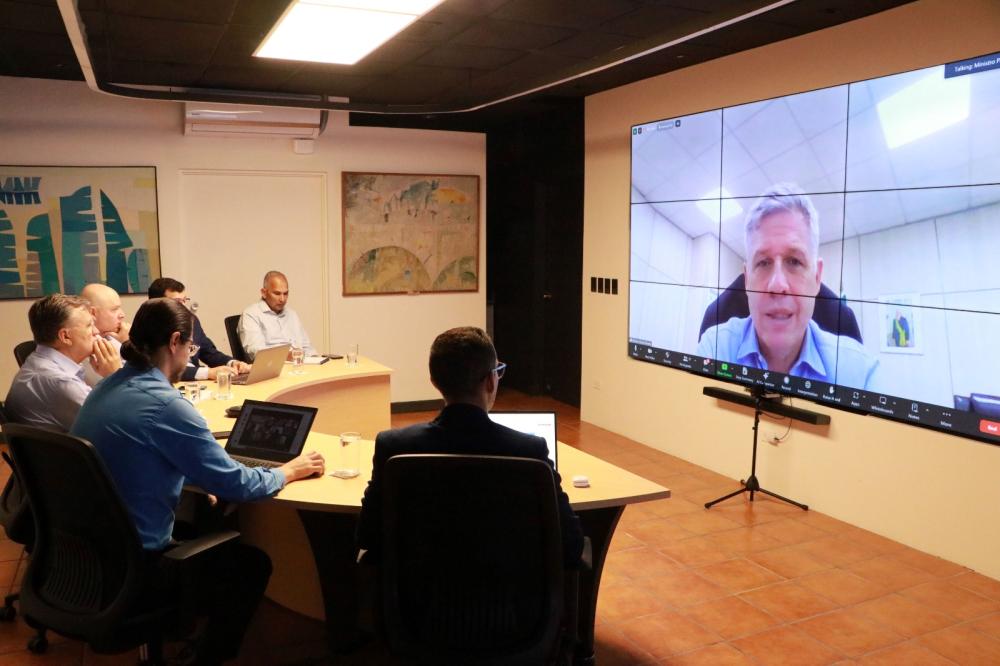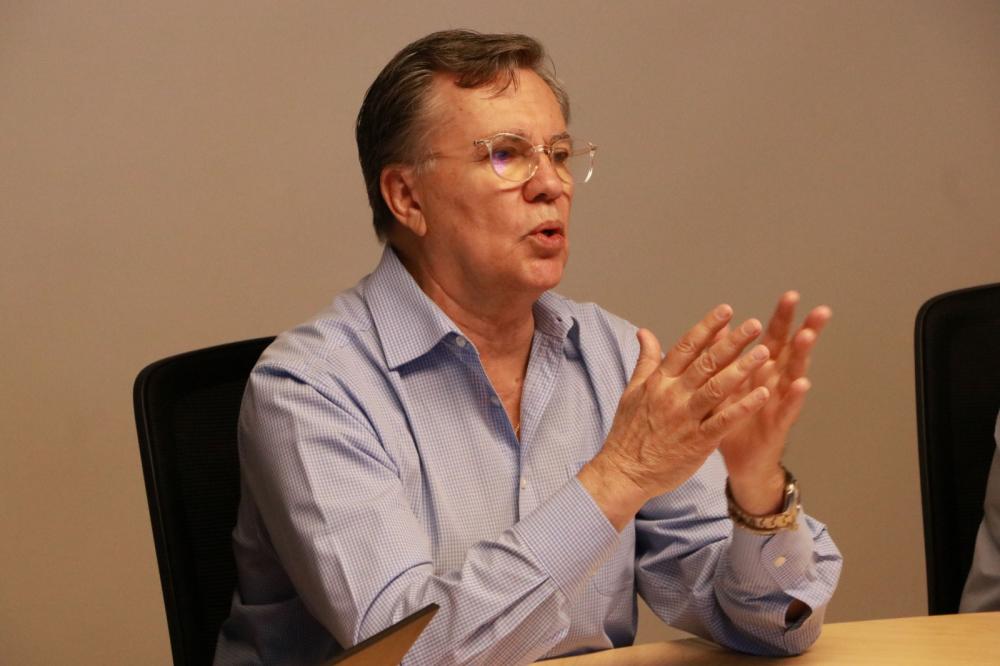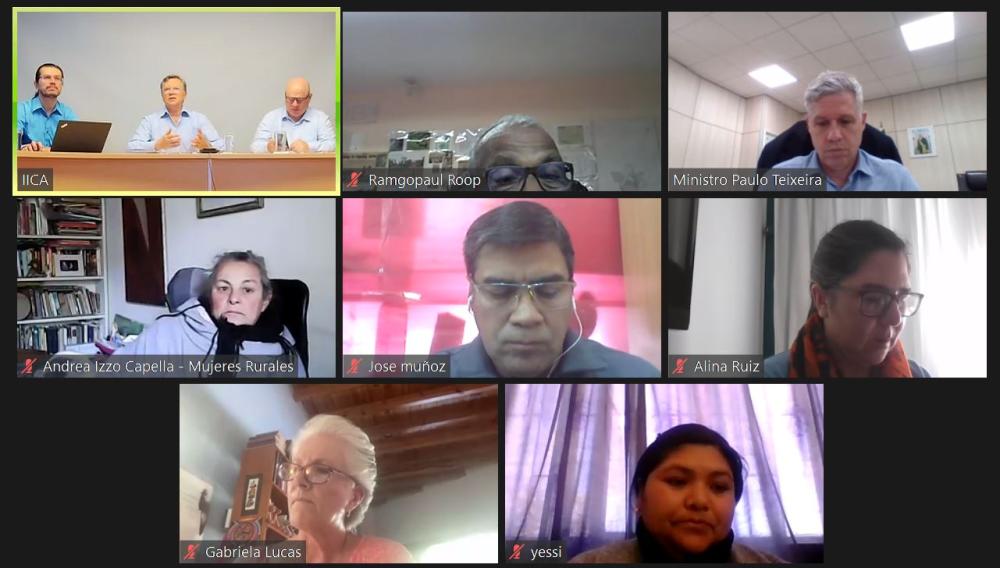The Leaders of Rurality of the Americas network began its work with the mission of empowering communities and strengthening rural territories with technical support from IICA

San José, 9 July 2024 (IICA) – More than 40 Leaders of Rurality from 21 countries in the hemisphere have joined efforts, with technical support from the Inter-American Institute for Cooperation on Agriculture (IICA), to identify specific actions aimed at empowering communities in rural territories, improving the quality of life for their inhabitants, and promoting youth retention in the countryside.
The Leaders of Rurality of the Americas -who have been recognized by IICA for being guarantors of food and nutritional security and, at the same time, protecting the planet's biodiversity- held a virtual meeting to share the progress made since April when they created a network to enhance cooperation, social and productive development.
The meeting was attended by the Minister of Agrarian Development and Family Farming of Brazil, Paulo Teixeira; the Director General of IICA, Manuel Otero; the Director of Technical Cooperation of the Institute, Muhammad Ibrahim; and the Manager of Territorial Development and Family Farming, Mario León.
Also present was a large group of IICA specialists, who gave a presentation on the tools that this hemispheric organization can provide to the Leaders of Rurality to achieve their goals of access to financing, use of new technologies, strengthening of agricultural schools, and other topics identified as priorities by these leaders.
The network was created in April 2024, during the “First Meeting of Leaders of Rurality of the Americas: Strengthening Rurality through Sustainable, Resilient, and Inclusive Production,” organized by IICA in San José, Costa Rica.
The April meeting was an intense week of work marked by dialogue and exchange of experiences among leaders, also attended by important figures from the global agricultural sector, such as Rattan Lal, director of the Rattan Lal Center for Carbon Management and Sequestration (C-MASC) at Ohio State University; Álvaro Lario, president of IFAD (International Fund for Agricultural Development); and former Brazilian Minister of Agriculture Roberto Rodrigues, a leading expert of the cooperative movement, among others.
Irreplaceable Role
"You all play an essential role," said Minister Teixeira, and stated that "humanity increasingly depends on farmers. Therefore, it is great news that you are assuming this leadership."
"We especially need youth. It is important that they stay in the countryside, and we must ensure that they can study, go to universities, and acquire technical knowledge to succeed," added Teixeira.
As part of Luiz Inácio Lula da Silva's government, the Minister described various public policies in Brazil aimed at providing technical assistance, financing, and productive organization to family farmers, while focusing on women, Indigenous communities, and youth. He explained, in this regard, the mandatory public procurement programs from state entities for small producers.
"Family farmers are not responsible for the climate crisis but suffer its consequences. We need to help small producers adopt new technologies that enhance resilience, which will reduce social inequalities," he stated.
"IICA has a historic mandate to work for the strengthening of rural territories. This is done by recognizing the actors who are in the territories," said Manuel Otero.
"Today," he added, "the Leaders of Rurality of the Americas network is already established and is defining a clear roadmap to advance together in strengthening the social fabric of rural territories and empowering communities. The motto is to be proactive and pragmatic. Each problem must have a solution."

Otero emphasized that IICA provides technical advice to the leaders, who are the protagonists and subjects of their own transformation. It is a heterogeneous group that includes family farmers, medium-sized producers, rural inhabitants, members of Indigenous communities, teachers, cooperative promoters, students, community leaders, promoters of innovation and technology in the field, and activists for a prominent role of women and youth in agricultural activities.
During the virtual meeting, the Leaders of Rurality showed the results of a survey conducted within the network to identify concrete priority actions to strengthen production, marketing, their communities, and leadership.
"We have worked hard since the April meeting at IICA headquarters with Leaders of Rurality from across the continent. We have shared our experiences, and now we are aligning and building consensus to work together," explained José Muñoz, an educator and promoter of organic agriculture in northern Argentina, who has been coordinating the exchange between actors from different regions of the continent.
The continuous technical support of IICA to strengthen the network and promote effective communication, the use of new technologies, the strengthening of youth, and the promotion of strategic alliances aimed at supporting rural agriculture were identified as the main objectives.
Participants also highlighted the need to strengthen rural and agricultural schools, along with new extension strategies, and the importance of disseminating information on access to productive financing by rural communities.
Another important topic for the Leaders was the creation of a label and catalog of family and peasant farming products of the Americas, with an emphasis on organic and agroecological products, to generate higher incomes and improve the quality of life for producers and communities.
The Leaders of Rurality of the Americas will present the progress of their work during the IICA Executive Committee meeting at the end of July.
To date, the complete list of Leaders of Rurality of the Americas recognized by IICA is as follows:
- Alina Ruiz, Andrea Izzo Capella, Daniel Bruno, José Muñoz, Milagros Paulón, Patricia Gorza (Argentina)
- Deon Gibson (Bahamas)
- John Hunte (Barbados)
- Trigidia Jiménez, Yessica Yana (Bolivia)
- Francisca Neri, Katia Silene Tonkyre, Simone Silotti (Brazil)
- Gillian Flies (Canada)
- Alfredo Carrasco, Bernarda Salazar, Emilio Sepúlveda, Macarena Valdés, Marco Aceituno, Paulina Carrasco (Chile)
- Julio César Delgado, Liliana Jiménez (Colombia)
- The group of students from Colegio Técnico Profesional 27 de abril, Sonia Murillo (Costa Rica)
- Elvia Monzón, Gustavo Rivas (Guatemala)
- Rosamund Benn (Guyana)
- Lorena Valdez (Ecuador)
- Odette Varela, Salomón Zelada (El Salvador)
- Krysta Harden, Marilyn Hershey, Philip “Chip” Councell (United States)
- Eodora Méndez, Katy Moncada (Honduras)
- Gabriela Lucas Deecke, Juana García Palomares (Mexico)
- Chito Quintero (Panama)
- Rosalina Jarolin Fernández (Paraguay)
- Haydée Anccasi (Peru)
- Joelin Santos (Dominican Republic)
- Gillian Goddard, Ramgopaul Roop (Trinidad and Tobago)
- Andrea Ballestero (Uruguay).

More information:
Institutional Communication Division.
comunicacion.institucional@iica.int